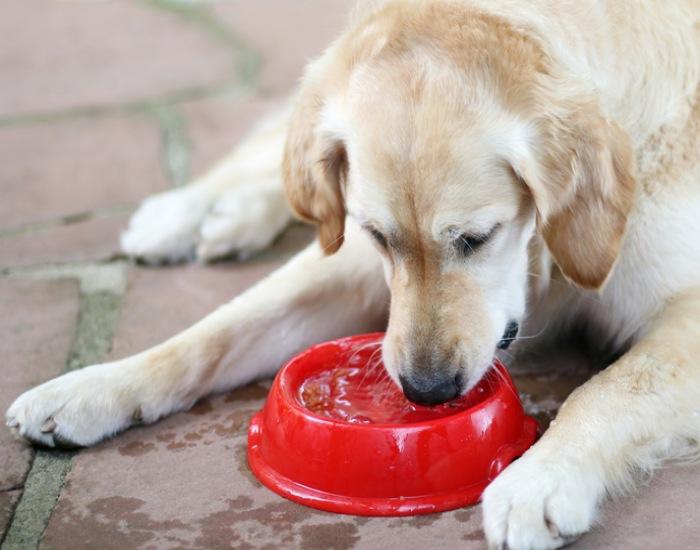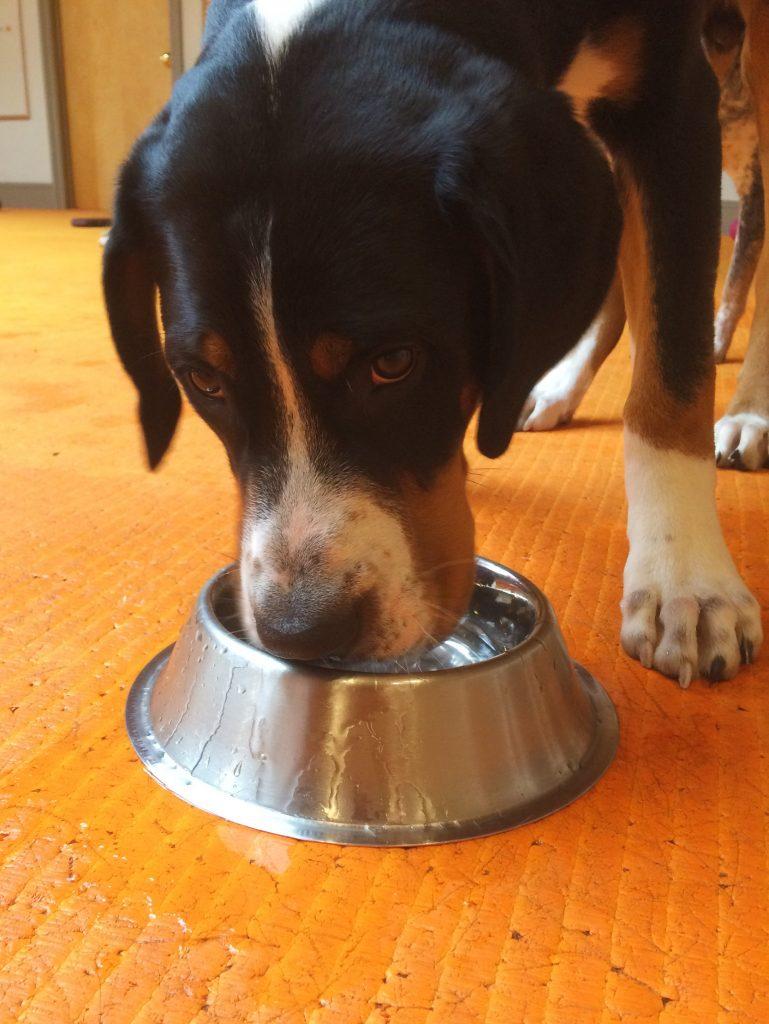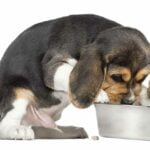As pet owners, we all want what’s best for our furry friends, and that includes ensuring they stay hydrated. However, there are times when our pups may drink more water than usual, raising concerns about their health. While increased thirst can be a normal response to heat, exercise, or even certain foods, it can also signal underlying issues that require attention.
In this article, we’ll explore the reasons why your dog might be guzzling more water than normal, when to be concerned, and what steps you can take to ensure your canine companion remains happy and healthy. So, if you’ve noticed your dog at the water bowl more often, read on to find out what this behavior could mean and how you can best support your beloved pet.
Table of Contents
- Understanding Your Dogs Water Intake Needs
- Identifying the Signs of Excessive Thirst
- Common Causes of Increased Water Consumption
- When to Seek Veterinary Advice
- Q&A
- In Conclusion
Understanding Your Dogs Water Intake Needs
As a responsible pet owner, being aware of your dog’s water intake is vital. Dogs generally require about 1 ounce of water per pound of body weight each day, but factors such as age, activity level, and climate can lead to variations. For instance, active breeds or those in warmer environments may need more hydration, while senior dogs and those with certain health conditions might need special attention to their water consumption. It’s essential to monitor your dog’s drinking habits to identify any significant changes that could warrant concern.
If you notice that your furry friend is consuming more water than usual, consider the following possible reasons:
Dietary Changes: A shift to dry food can increase thirst.
Heat or Exercise: Increased activity or high temperatures naturally raise hydration needs.
Health Issues: Conditions like diabetes or kidney disease could lead to excessive drinking.
Tracking your dog’s water intake can be as simple as measuring their daily consumption and noting any fluctuations. A quick comparison can help you detect potential health issues early, ensuring your furry companion stays happy and healthy.
Identifying the Signs of Excessive Thirst
Understanding whether your dog is drinking excessively is crucial for their health. Dogs naturally adjust their water intake based on their activity level, diet, and the weather. However, if you notice your furry friend drinking more than usual, it may signal an underlying issue. Here are some common signs that indicate excessive thirst:
Increased frequency of drinking: If your dog is constantly by their water bowl, it may be time to investigate.
Urination changes: Frequent bathroom trips or larger-than-normal urine output can accompany excessive thirst.
Lethargy: If your dog seems unusually tired or disinterested in activities they usually enjoy, this could be a concern.
Changes in appetite: A sudden adjustment in how much your dog eats can also correlate with increased thirst.
Recognizing these signs early can help you take appropriate action. To better understand your dog’s hydration needs, consider keeping a daily log of their water intake, noting any changes in behavior or health. Additionally, consult with your veterinarian if you observe prolonged changes or symptoms. It’s essential to rule out conditions such as diabetes, kidney disease, or Cushing’s disease, which can contribute to excessive thirst and related health issues.
Common Causes of Increased Water Consumption
Increased water consumption in dogs can be due to a variety of factors, ranging from simple lifestyle changes to more serious medical conditions. Some of the most common causes include:
Hot Weather: Just like humans, dogs may drink more water during warm months to stay hydrated.
Diet Changes: Switching to a dry food diet can lead to increased thirst, as dry kibble lacks moisture.
Increased Activity: More playtime or exercise can result in higher water intake to compensate for fluid loss.
Medical Conditions: Issues such as diabetes or kidney disease often lead to excessive thirst.
Medications: Some treatments, like corticosteroids, can have side effects that increase thirst.
To better understand how these factors influence your dog’s hydration needs, consider monitoring their water intake and any changes in behavior. A simple table can help track these fluctuations:
| Observation | Water Intake (cups) | Notes |
|---|---|---|
| Normal Days | 2-4 | Standard intake for average activity |
| Hot Weather | 4-6 | Increased due to heat |
| Diet Change | 3-5 | New dry food introduced |
| Post-Exercise | 5-8 | After long walks or playtime |
When to Seek Veterinary Advice
Recognizing when your dog’s water intake may warrant a trip to the vet is crucial for their health. If you notice that your dog is drinking excessively, especially if it is accompanied by any unusual symptoms, it’s important to take action. Some signs that should prompt a veterinary consultation include:
Frequent urination - If your dog is needing to go outside more often than usual.
Changes in appetite – A noticeable increase or decrease in how much they eat.
Weight loss or gain – Sudden changes in weight may indicate an underlying issue.
Lethargy or weakness – If your dog seems unusually tired or inactive.
Vomiting or diarrhea – These can be signs of serious health concerns.
In addition to these symptoms, understand that excessive drinking could be a sign of various medical conditions such as diabetes, kidney disease, or Cushing’s disease. It’s essential to keep a record of your dog’s water intake and any behavioral changes to provide your veterinarian with the most accurate information. Early intervention can make a significant difference in the outcome of many conditions, so don’t hesitate to reach out for professional help if you have concerns about your furry friend’s drinking habits.
Q&A
Q: How much water is too much for a dog?
A: The amount of water a dog needs can vary based on their size, age, activity level, and diet. On average, dogs typically need about one ounce of water per pound of body weight daily. A sudden increase in water consumption—especially if your dog is drinking significantly more than this guideline—could be a cause for concern.
Q: What are some signs that my dog is drinking too much water?
A: Look for signs such as frequent urination, excessive panting, lethargy, vomiting, or any unusual behaviors. If you notice that your dog is always seeking water or is unable to settle down after drinking, it might be an indication of an underlying issue.
Q: What could cause my dog to drink excessively?
A: There are several reasons why a dog may drink more water than usual. Common causes include diabetes mellitus, kidney disease, liver dysfunction, or Cushing’s disease. Some medications can also increase thirst. It’s important to monitor any accompanying symptoms for a clearer picture.
Q: When should I be concerned about my dog’s water intake?
A: If your dog’s drinking habits change suddenly or significantly, it’s advisable to consult your veterinarian. Additionally, if you notice other symptoms like weight loss, vomiting, or changes in appetite, these could signal a more serious health issue that requires immediate attention.
Q: What should I do if I think my dog has drunk too much water?
A: If you suspect your dog has consumed an excessive amount of water, watch for signs of water intoxication, which can occur in extreme cases. Symptoms may include bloating, seizures, or loss of coordination. In such cases, seek veterinary care immediately. If the drinking pattern is excessive but not immediately hazardous, schedule a vet appointment for further evaluation.
Q: How can I manage my dog’s water consumption?
A: To help manage your dog’s water intake, establish a regular routine for feeding and watering, and monitor how much they drink. If you’re concerned about over-drinking, consider measuring their daily water intake. Provide fresh, clean water, but avoid letting them gulp large amounts all at once.
Q: Are there any preventative measures I can take?
A: Ensure that your dog is not bored or anxious, as this can lead to excessive drinking. Engage them in regular exercise and mental stimulation, and maintain a healthy diet. Regular vet check-ups can help identify any health issues early on.
Q: What steps should I take if my dog has a medical condition causing excessive thirst?
A: If your vet diagnoses a medical condition, follow their treatment plan diligently, which may include medication or dietary adjustments. Regular follow-ups are essential to monitor your dog’s condition and adapt the care plan as necessary.
Q: Is there anything else I should know about my dog and their water intake?
A: Always ensure your pet has access to fresh water and monitor their behavior closely. Being observant and proactive can help catch any potential health issues early. If in doubt about your dog’s health, never hesitate to consult your veterinarian. They are your best resource for your furry friend’s well-being!
In Conclusion
while it may seem harmless for your dog to indulge in a little extra water, it’s essential to be mindful of any changes in their drinking habits. A sudden increase in water intake can sometimes signal underlying health issues that warrant attention. Always keep an eye on your furry friend’s behavior and consult your veterinarian if you notice anything unusual. Regular check-ups and open communication with your vet are key to ensuring your dog’s well-being. Remember, a happy dog is a hydrated dog, but moderation is crucial! Thank you for joining us in exploring this important topic, and here’s to many more healthy and joyful moments with your four-legged companion!

















